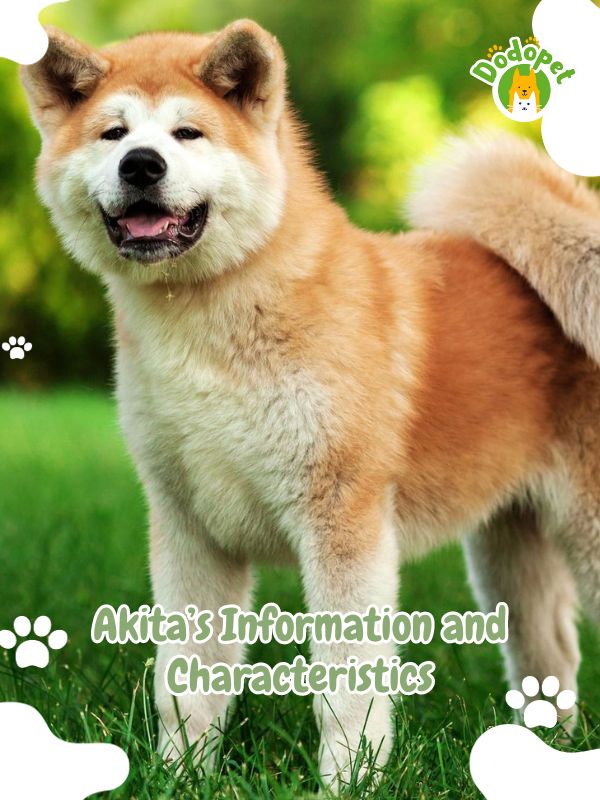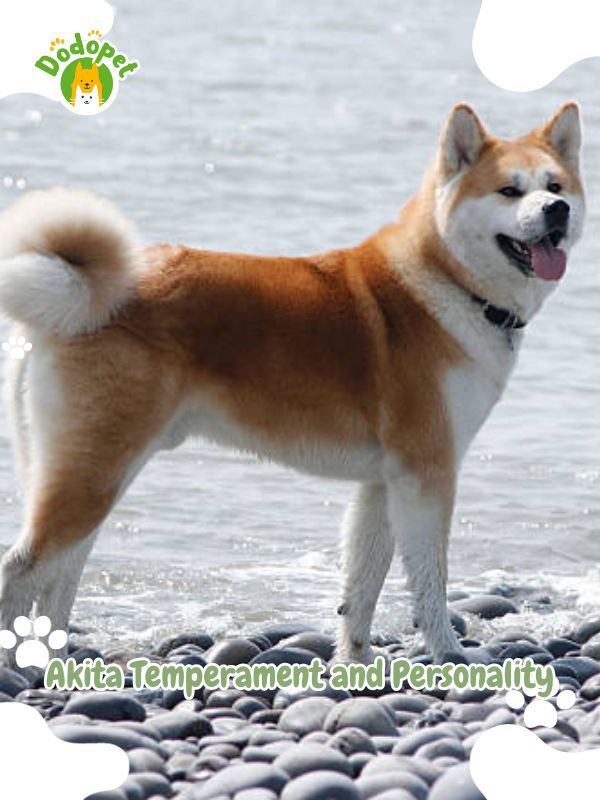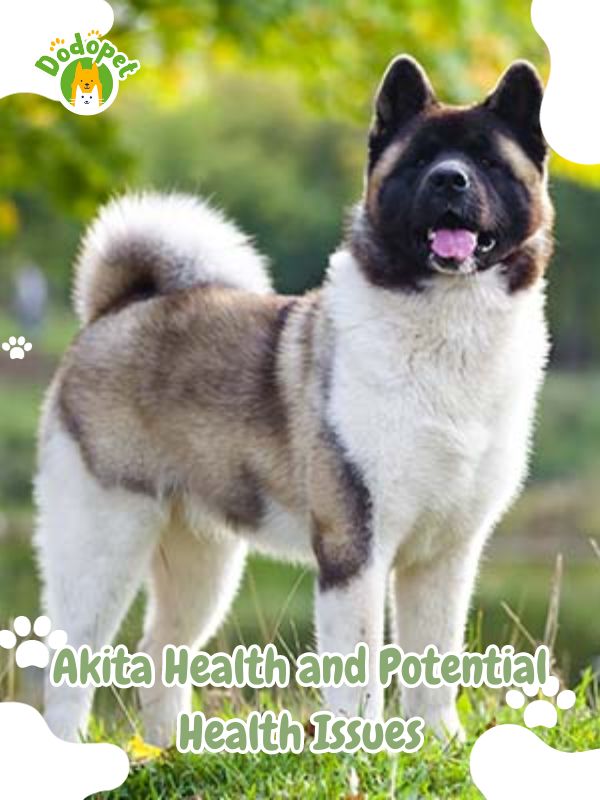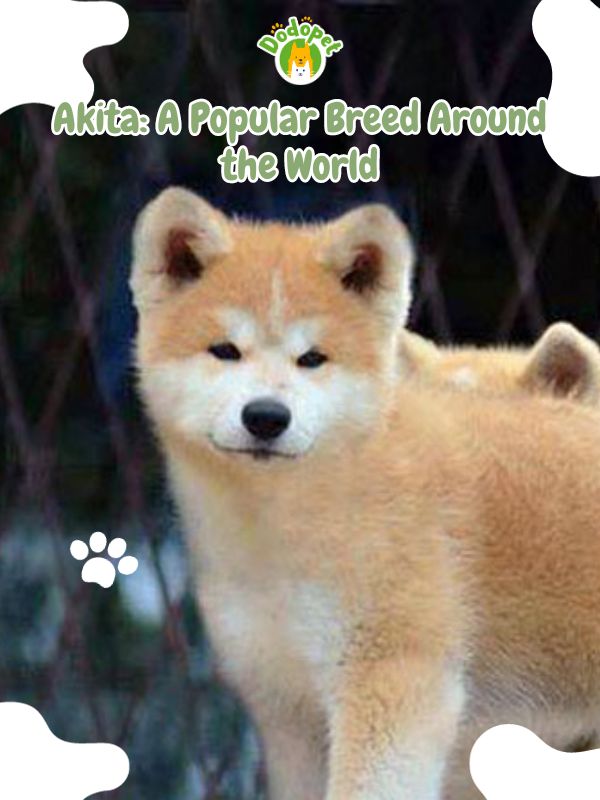The Akita is a majestic and powerful dog breed that originated in Japan. Known for its strength, loyalty, and intelligence, the Japanese Dog Breeds Akita has become a beloved companion and working dog around the world. This article will provide detailed information and characteristics of the Akita breed, including its history, appearance, temperament, health, and training.
The History of the Japanese Dog Breeds Akita
The Akita breed boasts a millennia-long history in Japan, initially developed for hunting large game like bears and boars, emphasizing strength and courage. Evolving over time, Akitas took on roles as guardians for Japanese royalty and nobility. The breed faced a setback during World War II, with a decline in population due to food shortages and government orders to use dogs for fur. Despite these challenges, committed enthusiasts successfully safeguarded the Akita lineage, leading to a resurgence post-war. Presently, the Akita is esteemed as a national treasure in Japan, admired for its loyalty and devotion.

The History of the Japanese Dog Breeds Akita
Akita’s Information and Characteristics
The Akita is a large and powerful dog with a well-balanced body. It has a broad head, small triangular eyes, and erect ears. The breed’s double coat consists of a thick, dense undercoat and a straight, coarse outer coat. Akitas come in various colors, including white, brindle, red, and sesame.
Male Akitas typically stand between 26 to 28 inches (66 to 71 cm) at the shoulder and weigh around 100 to 130 pounds (45 to 59 kg). Females are slightly smaller, measuring 24 to 26 inches (61 to 66 cm) in height and weighing 70 to 100 pounds (32 to 45 kg). The Akita’s physical appearance exudes strength, dignity, and nobility.

Akita’s Information and Characteristics
Akita Temperament and Personality
The Akita is renowned for its noble temperament and distinct personality traits that set it apart as a dignified and loyal companion. Known for their loyalty and devotion to their families, Akitas form strong bonds and are often protective of their loved ones. Despite their imposing appearance, Akitas are known to be affectionate and gentle with those they hold dear. They have a calm and composed demeanor, demonstrating a quiet confidence that reflects their self-assured nature.
Akitas are renowned for their intelligence, independence, and strong-willed character. While their independence can make training a thoughtful and patient process, Akitas respond well to consistent and positive reinforcement. Early socialization is crucial for these dogs to ensure they grow up to be well-mannered and adaptable. Akitas may display a reserved nature around strangers, emphasizing their natural guarding instincts.
In addition to their loyalty and intelligence, Akitas exhibit a dignified aloofness that is part of their inherent charm. They are not known to be overly vocal, but when they do express themselves, it is usually with a deep, powerful bark that serves as a protective signal. Overall, the Akita’s temperament combines a steadfast loyalty with an independent spirit, making them not only a devoted family member but also a regal and discerning companion.

Akita Temperament and Personality
Akita Health and Potential Health Issues
Like all dog breeds, Akitas are prone to certain health issues. It is crucial for potential owners to be aware of these conditions and take appropriate measures to ensure the well-being of their Akita.
Some common health issues that Akitas may face include:
- Hip dysplasia: a condition where the hip joint does not develop properly, leading to pain and mobility issues.
- Progressive retinal atrophy (PRA): a degenerative eye disease that can lead to blindness.
- Hypothyroidism: a hormonal disorder that affects the thyroid gland and can cause weight gain, lethargy, and skin problems.
- Autoimmune disorders: Akitas are more prone to certain autoimmune diseases, such as autoimmune hemolytic anemia and autoimmune thyroiditis.
- Bloat: a potentially life-threatening condition where the stomach twists, cutting off blood supply and causing severe pain.
Regular veterinary check-ups, a balanced diet, and regular exercise can help maintain the overall health of an Akita.

Akita Health and Potential Health Issues
Training and Exercise Needs
The Akita is an intelligent and strong-willed breed that requires consistent and firm training. Early socialization is crucial to ensure that the Akita grows up to be well-behaved and comfortable in various situations. Akitas have a moderate exercise requirement and enjoy daily walks, playtime, and mental stimulation.
Training Needs
- Positive reinforcement techniques work well.
- Early socialization is crucial for good behavior.
- Firm and patient training is effective due to their strong-willed nature.
- Starting training at an early age is recommended.
Exercise Requirements
- Moderate energy level necessitates regular exercise.
- Daily walks, play sessions, and interactive activities are essential.
- Engage their intelligence with puzzle toys and obedience training.
- Balanced exercise routine is important for physical and mental stimulation.
Leash Training
- Early leash training is necessary.
- Supervision is crucial, especially in unfenced areas.
- Akitas can be powerful, so proper guidance on a leash is important.
Environment
- Akitas thrive in environments with enough space to roam.
- Outdoor activities should be supervised due to their strong prey drive.
However, it is important to note that Akitas are not overly active dogs and can adapt well to apartment living as long as their exercise needs are met. Training sessions should be positive, reward-based, and consistent. Harsh training methods or punishment can lead to a stubborn and uncooperative Akita.
Japanese Dog Breeds Akita: A Popular Breed Around the World
The Akita’s striking appearance, loyalty, and intelligence have made it a popular breed around the world. From Japan to the United States, many dog lovers have fallen in love with this majestic Japanese breed. In this section, we will explore the popularity of the Akita in different countries and its role in various settings.
Akita Popularity in Japan
The Akita holds a distinctive position in Japan, not just as a cherished canine companion, but also as a manifestation of national pride and cultural heritage. Admired for its loyalty, strength, and dignified presence, the Akita has not only captured hearts but has also been acknowledged as a national treasure. This esteemed status was formally acknowledged with the Akita’s designation as a Japanese Natural Monument in 1972, underscoring its profound significance in the annals of the country’s history and identity.
The popularity of the breed in Japan is intricately woven into its historical roles and cultural symbolism. Akitas have a historical association with the nobility and aristocracy, serving as both hunting and guarding companions. Their exceptional courage and strength contributed significantly to their esteemed status. Over the years, Akitas have evolved into symbols of good health, happiness, and longevity, often being presented as meaningful gifts to commemorate significant life events.

Akita – A Popular Breed Around the World
Akita Popularity in the United States
The Akita has established itself as a popular and admired breed in the United States, where its unique combination of strength, loyalty, and distinctive appearance has garnered a dedicated following. Originally introduced to the U.S. in the early 20th century, the breed gained significant recognition after World War II, when American servicemen stationed in Japan were introduced to Akitas and brought them back to the United States.
The breed’s popularity is not only attributed to its physical attributes but also to its temperament and character. Akitas are known for their loyalty, intelligence, and protective instincts, making them valued family members and guardians. While they may be reserved with strangers, their devotion to their human companions is unwavering.
Today, the Akita continues to hold a strong presence in the American canine landscape, with breed enthusiasts appreciating both its historical significance and its role as a devoted and majestic family companion.
Japanese Dog Breeds Akita as Therapy Dogs
While Akitas are not traditionally recognized as therapy dogs, their intelligence and calm demeanor can make them suitable for certain therapeutic environments. Their loyalty and attentiveness may be beneficial, but individual temperament, early socialization, and training are crucial factors. Careful consideration, professional guidance, and certification processes are recommended to assess an Akita’s suitability for therapy work due to their reserved nature and strong protective instincts.
Conclusion
The Akita is a majestic and powerful Japanese dog breed that has captured the hearts of dog lovers around the world. With its rich history, striking appearance, and loyal nature, the Japanese dog breeds Akita continues to be a beloved companion and working dog. However, potential owners should be aware of the breed’s independent temperament and specific health needs. With proper training, socialization, and care, the Akita can thrive bring joy to its family for many years to come.









